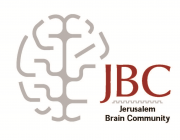
Tamar Licht
Blood vessels are considered to be an important component of stem cell niches, including of neuronal stem cells (NSCs) niches. However, this contention mostly relies on the close physical proximity of NSCs to blood vessels, and evidence that blood vessels indeed control NSC activity awaits definite proof. Here we used a transgenic system allowing for conditional and reversible induction of hippocampal VEGF in order to ramify the vasculature and determined how this manipulation impact different aspects of adult neurogenesis. Increasing the microvascular density dose-dependently increased neurogenesis reaching up to 10-fold of its natural rate. Remarkably, neurogenesis proceeded at a markedly elevated rate for many months without premature exhaustion of NSCs and irrespective of whether ectopic VEGF expression was ongoing or switched-off shortly after it has already acted to produce new, durable vessels. Further, inducing VEGF and rejuvenating the vascular niche in older mice at a time when the NSC reservoir has already largely diminished was still effective in increasing the neurogenic output. Ability of the expanded/rejuvenated vasculature to blunt the age-dependent neurogenic decay could be attributed in part to increased ability of NSCs to exit quiescence. 3D imaging of GFP-tagged NSCs revealed that upon VEGF induction these radial glia-like cells extend long apical processes in the direction of even remote vessels and spread over them at multiple points. Taken together, these findings not only provide a functional evidence for the role of blood vessels in the NSC niche but also suggest that vascular expansion and rejuvenation might attenuate age-dependent decline of hippocampal neurogenesis.

